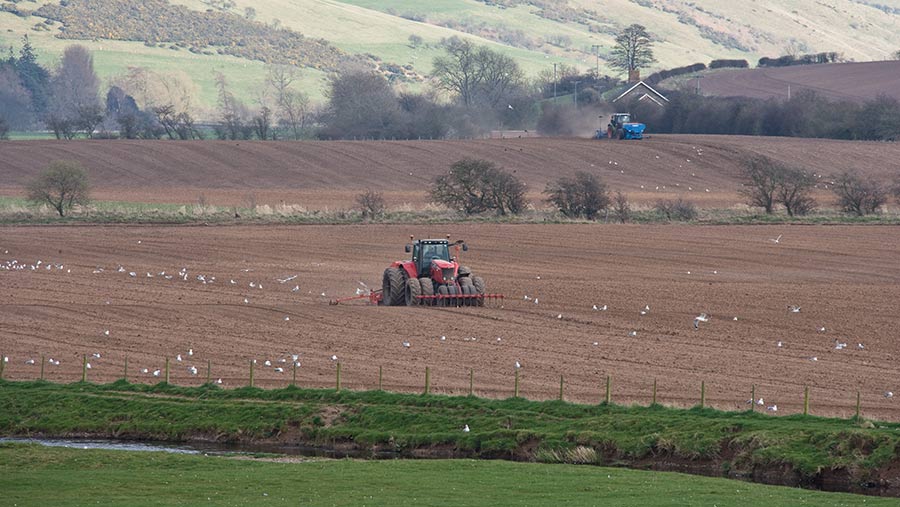Opinion: Farmers missing a trick by ignoring Defra schemes
 © Tim Scrivener
© Tim Scrivener The new payments for soil standards under the Sustainable Farming Incentive (SFI) are too low to bother with. Well, that was the consensus of farmers attending a recent local meeting.
Intrigued, I metaphorically dug a little deeper, to find this sentiment isn’t unique to Hertfordshire.
Across the “Twittersphere”, it appears that, with wheat worth more than £300/t, uptake of the new soil payments will be disappointing.
See also: Future Farm Resilience Fund – how farms are using free advice
I recently engaged in an assessment under Defra’s Future Farm Resilience scheme.
Signing up for intermediate soil standards for arable and improved grassland as soon as they become available was subsequently placed at the top of my must-do list.
The assessment suggested that remuneration for “good practice” at £40/ha and £58/ha, respectively, wasn’t to be sniffed at.
\While it won’t pay for next year’s fertiliser, it will soften the blow from successive cuts to the Basic Payment Scheme (BPS).
The disappointing response to the SFI soil offer isn’t a new phenomenon. Uptake of the resilience fund advice itself is as low as 50% in some areas of the UK.
The assessment, funded by Defra, is a free review of assets and income to help farmers and land managers navigate the changes in the industry over the agricultural transition period.
How can uptake be so poor? Unless you know how you are to replace £233/ha of BPS support by 2027, why wouldn’t you find two hours of your time to have your business scrutinised?
Has 50 years of the CAP, direct payments and environmental schemes led to a chronic confusion in our interpretation of value in farm support?
Government schemes offering grants to aid the purchase of new farm machinery are always oversubscribed, and yet assistance that promotes the health of the business, its team members, the soil or biodiversity receive consistently underwhelming uptake.
When New Zealand removed farm support in 1984, the one piece of advice given by a highly regarded agricultural consultant was: “Leave your ‘iron disease’ – vehicles and plant desires – in the dealer’s yard. Stop looking, thinking and talking about them.”
I appreciate that Defra finds itself in a bind when rolling out new schemes – trying to broaden their appeal while not falling foul of double-funding rules is difficult.
They need to find ways to reframe advice and incentivise adoption of schemes, without rewarding laggards and penalising early adopters.
For example, those who have embraced cover cropping in stewardship agreements will be disadvantaged under the SFI soil scheme.
Mimicking the way discounts are offered on farm implements to the purchasing of cover crop seed may be a way to sidestep the issue of double funding and appeal more than a sum of money for improving our soil.
Many direct drills were purchased with grant aid under the Farming Investment Fund.
A large proportion of these farms said they would not have bought drills without the financial incentive. However, discussions with early adopters suggest an opposite approach.
Their trigger for shifting to regenerative agriculture had little to do with the cost of the drill.
Many cited benefits to the soil, the bottom line, and recognising a need to overhaul management practices. All this they learned from experienced adopters. The drill was secondary.
This suggests the resistance to Defra schemes is not the gap in finance, but a gap in the learning required.
High farmgate prices should not be a barrier to best practice.

